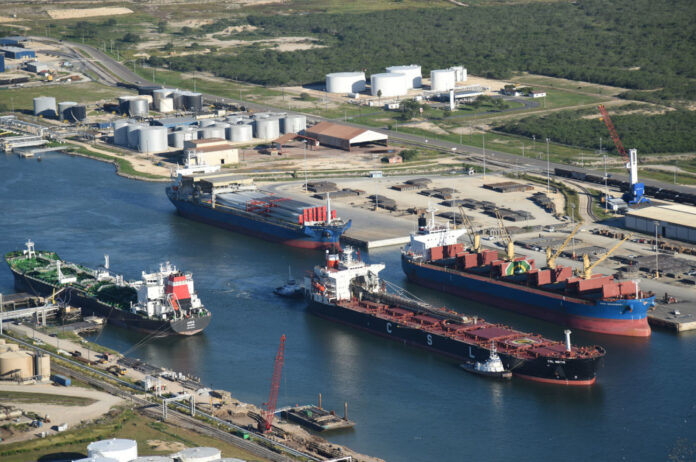Texas LNG, one of three companies proposing liquefied natural gas export terminals at the Port of Brownsville, announced on Dec. 17 that it had signed a 50-year lease with the port.
Annova LNG and NextDecade (Rio Grande LNG), the other two companies, have already signed 50-year leases with the port. Texas LNG is the smallest of the three proposed plants, which would receive shale gas from the Eagle Ford Shale and Permian Basin via pipelines for export to foreign markets.
Eduardo Campirano, port director and CEO, said the port worked with the three companies for more than five years to get to this point, a necessary step in the process toward a final investment decision (FID) by each company, which dictates whether they will actually proceed with construction.
“These are sophisticated projects that involve a whole lot, so this … required quite a bit of negotiations and working through them,” he said. “All projects are obviously contingent on FID. For purposes of securing FID the lenders needs to know that land is available.”
The leases are contingent on whether each company reaches a positive FID, Campirano said, adding that the agreements “define the terms of the relationship going forward should it become a reality.”
Annova and NextDecade had planned to get to the FID stage in 2020 but have pushed that back to 2021 because of economic uncertainty as a result of the COVID-19 pandemic, he said.
“They’ve all said that,” Campirano said. “One, is it disrupted the market not only domestically but worldwide. Two, is that it’s hard to get out and close deals if you can’t get in front of people. So yes, the pandemic has had an impact.”
In at least one case, contract talks with potential customers have fallen through. In early November came the announcement that Engie, a multinational electric utility partly owned by France, was pulling out of negotiations with NextDecade under pressure from environmentalists and the French government, who argued that the deal would violate France’s climate goals since it would involve buying natural gas produced by fracking.
The proposed LNG plants have also come under fire from environmentalists and some communities in the Lower Rio Grande Valley, who argue that whatever economic benefit wouldn’t be enough to offset the negative impact on the environment, tourism and recreational and commercial fishing, and quality of life.




